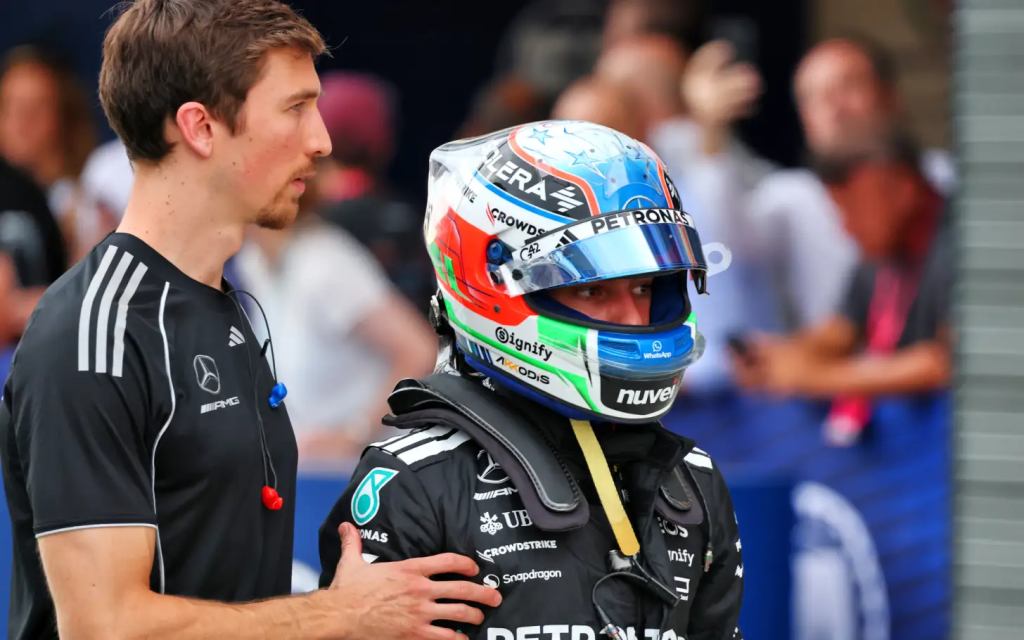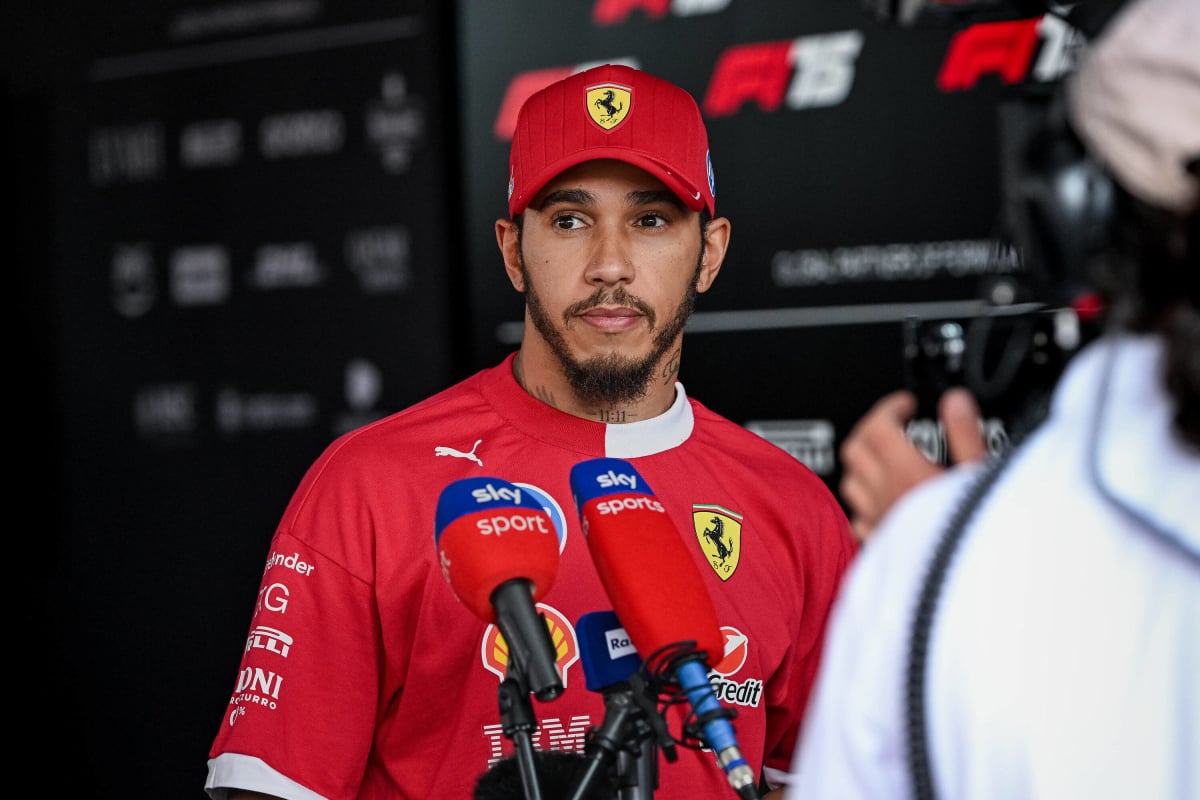
In the latest episode, a critical spotlight is cast upon the contrasting fortunes of McLaren’s youthful duo—Lando Norris and Oscar Piastri—and Ferrari’s seasoned veteran, Lewis Hamilton. The discussion provocatively suggests that Norris and Piastri have undergone a kind of strategic “brainwashing,” wherein McLaren’s internal culture and methodologies have profoundly influenced their on-track personas and decisions. This psychological conditioning is presented not negatively, but as a mechanism contributing to the team’s recent cohesion and performance surge, hinting at an orchestrated, top-down influence on driver mentality.
In stark contrast, Lewis Hamilton’s recent trajectory with Ferrari is explored with a tone of concern, particularly after a humbling performance that underscores his ongoing adaptation struggles. Once dominant with Mercedes, Hamilton’s transition to the Scuderia has not been without turbulence. The podcast alludes to a significant psychological and technical mismatch, suggesting that Ferrari’s vehicle dynamics and team environment may not be facilitating Hamilton’s usual brilliance. His underwhelming result is painted not as an isolated incident, but as indicative of broader systemic issues within the team and his fit within it.
Meanwhile, McLaren’s grip on its driver strategy appears deliberate and methodical, with the podcast panel insinuating that Norris and Piastri operate within a tightly controlled framework. Such control, whether via data, strategy meetings, or race-day communication, may be limiting their autonomy—but it is also seemingly producing results. The term “brainwashing” is deployed provocatively, implying the removal of instinctual spontaneity in favor of methodical precision, which could be essential to McLaren’s championship bid. This psychological discipline could explain their standing at the top of the 2025 Drivers’ standings.
The discussion also touches on Mercedes’ resurgence, particularly spotlighting Kimi Antonelli’s breakthrough point at the Hungarian Grand Prix. Though the teenager only managed a tenth-place finish, the team believes a better qualifying session could have unlocked a significantly higher result. Mercedes engineering director Andrew Shovlin acknowledged the team’s role in limiting Antonelli’s potential but praised his growth. His drive, especially overtaking Hamilton on harder tires, highlighted his adaptability and burgeoning racecraft under pressure.
Ultimately, the podcast provides a compelling examination of driver-team dynamics, mental conditioning, and performance psychology in modern F1. The notion of drivers being subtly reprogrammed—whether by data-driven oversight or managerial doctrine—illustrates the evolving nature of the sport, where mental acuity and strategic compliance are as critical as raw pace. While Norris and Piastri benefit from this structured environment, Hamilton’s Ferrari chapter reveals the inherent risk in legacy drivers seeking reinvention amid organizational discord.



